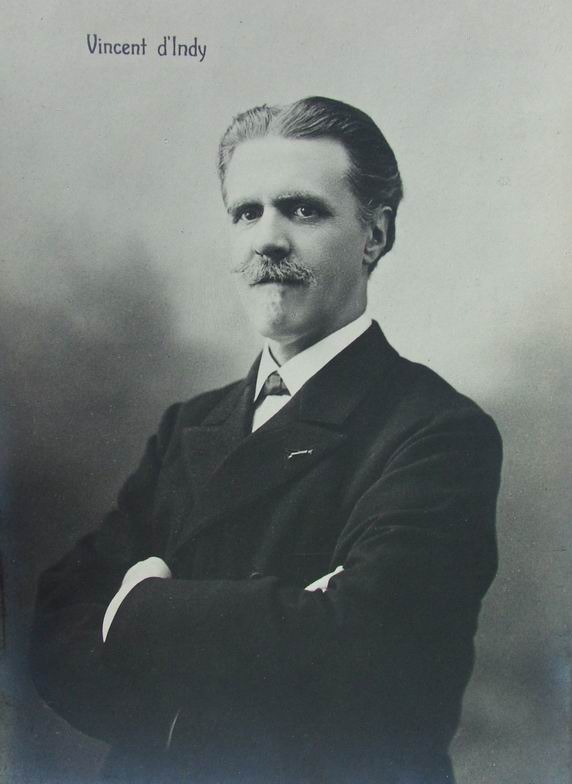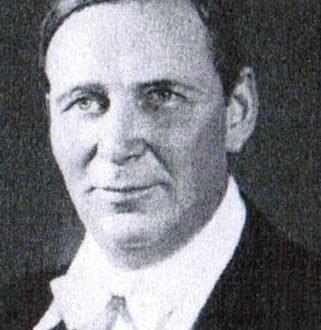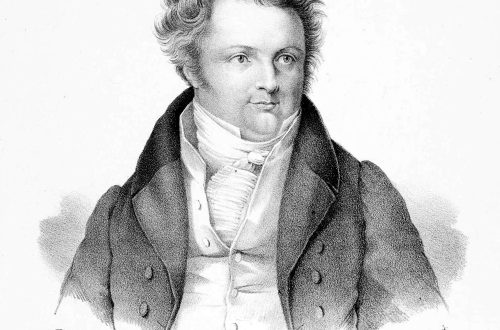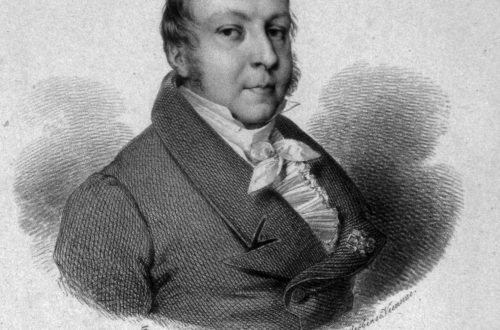
Vincent d’Indy |
Vincent d’ Indy
Paul Marie Theodore Vincent d’Andy was born March 27, 1851 in Paris. His grandmother, a woman with a strong character and a passionate lover of music, was engaged in his upbringing. D’Andy took lessons from JF Marmontel and A. Lavignac; regular employment was interrupted by the Franco-Prussian War (1870–1871), during which d’Andy served in the National Guard. He was one of the first to join the National Musical Society, founded in 1871 with the aim of reviving the former glory of French music; among d’Andy’s friends are J. Bizet, J. Massenet, C. Saint-Saens. But the music and personality of S. Frank were closest to him, and soon d’Andy became a student and passionate propagandist of Frank’s art, as well as his biographer.
A trip to Germany, during which d’Andy met Liszt and Brahms, strengthened his pro-German sentiments, and a visit to Bayreuth in 1876 made d’Andy a convinced Wagnerian. These hobbies of youth were reflected in the trilogy of symphonic poems based on Schiller’s Wallenstein and in the cantata The Song of the Bell (Le Chant de la Cloche). In 1886, a Symphony on the song of a French highlander (Symphonie cevenole, or Symphonie sur un chant montagnard francais) appeared, which testified to the author’s interest in French folklore and some departure from the passion for Germanism. This work for piano and orchestra may have remained the pinnacle of the composer’s work, although d’Andy’s sound technique and fiery idealism were also vividly reflected in other works: in two operas – the completely Wagnerian Fervaal (Fervaal, 1897) and The Stranger (L’Etranger, 1903), as well as in the symphonic variations of Istar (Istar, 1896), the Second Symphony in B flat major (1904), the symphonic poem A Summer Day in the Mountains (Jour d’ete a la montagne, 1905) and the first two of his string quartets ( 1890 and 1897).
In 1894, d’Andy, together with S. Bord and A. Gilman, founded the Schola cantorum (Schola cantorum): according to the plan, it was a society for the study and performance of sacred music, but soon the Schola turned into a higher musical and pedagogical institution that competed with the Paris Conservatoire. D’Andy played a major role here as a stronghold of traditionalism, rebuffing the innovations of authors such as Debussy; musicians from different countries of Europe came to d’Andy’s composition class. The aesthetics of d’Andy relied on the art of Bach, Beethoven, Wagner, Franck, as well as on Gregorian monodic singing and folk song; The ideological basis of the composer’s views was the Catholic concept of the purpose of art. The composer d’Andy died in Paris on December 2, 1931.
Encyclopedia





